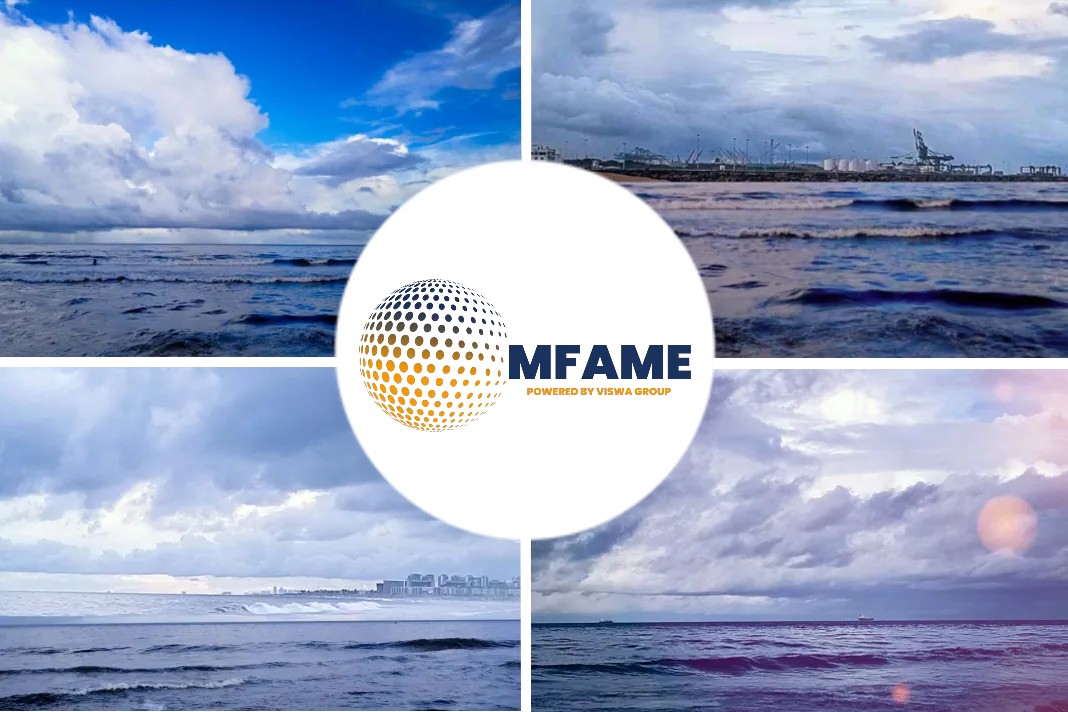A recent joint Riviera Maritime Media/De Nora ballast water treatment webinar gave vessel owners and operators a chance to discuss their experiences with the retrofitting and operation of ballast water treatment systems (BWTS), says an article published on their website.
BWMS Installations Timeframe
Riviera’s head of content Edwin Lampert hosted the webinar, opening proceedings by reviewing the somewhat tortured implementation of the IMO Ballast Water Convention. “The 8 September 2019 was a momentous day in the maritime calendar, with the Ballast Water Management Convention coming into full effect after 15 years of drift, delay and postponement,” he said. “Owners now have a five-year timeframe between 8 September 2019 and 7 September 2024 to install a ballast water management system (BWMS), with installations projected to peak in 2022.”
Shipowners Experience
Anglo-Eastern managing director Carsten Ostenfeldt related the shipmanager’s experiences to date, noting the company’s experience with 19 different makes and models of BWTS. Approximately 210 ships have been fitted with these systems from new, with 90 being retrofits. Mr Ostenfeldt noted that all the systems exhibited some issues in the first year of use, ranging from the quality of the parts fitted through to the suppliers’ knowledge of their own systems. But he commented that the situation has matured, and the number of issues is declining.
The Value of Sensors
De Nora Water Technologies general manager (BWMS division) Dr Stelios Kyriacou was asked about the value of sensors on BWTS. De Nora has taken the decision to install a comprehensive monitoring platform and Mr Kyriacou said: “It logs every single system at every single stage of the management of the system. This gives us the opportunity to carry out a remote verification of the system installed on the ship.”
Benefits on Retrofits
Ardmore Shipping chief operating officer Mark Cameron has experience of newbuildings and retrofits of ballast water systems, both on tankers with pump rooms and deep-well pumps. “Each brings its own set of problems,” he noted.
BWTS Training
Training on these systems is extremely important and Ardmore has been training crews on ballast water treatment operation at Anglo Eastern’s shore-based facilities. While acknowledging there may be some initial problems, Mr Cameron believes there is no point in only part complying: “[Tanker operators] are not here to be caught out for minor infractions of small details. We’re here to actually do what is expected of us and for the [BWTS] to live up to what it is expected to do.”
Type Approval Testing
SGS marine services regional business development manager Guillaume Drillet has had previous experience of type-approval testing. SGS has already undertaken commissioning testing of BWTS in different countries and it has found that non-compliance occurs in around 15-20% of cases. “The non-compliance on commissioning helps us to find if a system is not working and what needs to be done to bring it into compliance,” said Mr Drillet.
BWTS Financing
Norton Rose Fulbright partner Philip Roche noted the law firm has been involved in some of the financing initiatives for funding the fitment of BWTS. It is also providing advice to clients on their position regarding the laws surrounding BWTS. “The concentration tends to be on the liability clauses,” he noted.
Not Another Oily Water Record Book
INTERTANKO’s environmental director Tim Wilkins expressed surprise that commissioning testing was not mandatory in the first phase of the Convention. He warned of how the convention might develop when it came to the ballast water record book: “Let this not be another ‘oily water record book’ situation,” he said.
Did you subscribe to our daily newsletter?
It’s Free! Click here to Subscribe!
Source: Riviera Maritime Media






















